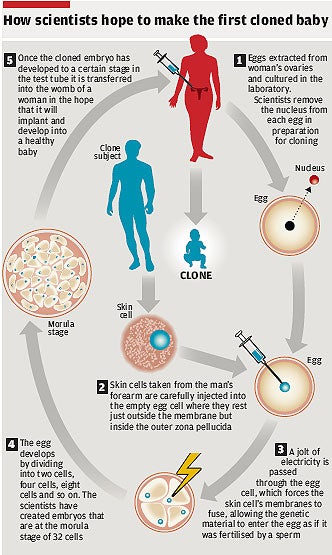Steve Connor: This procedure can't be ethical until it is proven safe

Your support helps us to tell the story
From reproductive rights to climate change to Big Tech, The Independent is on the ground when the story is developing. Whether it's investigating the financials of Elon Musk's pro-Trump PAC or producing our latest documentary, 'The A Word', which shines a light on the American women fighting for reproductive rights, we know how important it is to parse out the facts from the messaging.
At such a critical moment in US history, we need reporters on the ground. Your donation allows us to keep sending journalists to speak to both sides of the story.
The Independent is trusted by Americans across the entire political spectrum. And unlike many other quality news outlets, we choose not to lock Americans out of our reporting and analysis with paywalls. We believe quality journalism should be available to everyone, paid for by those who can afford it.
Your support makes all the difference.The ethics of human cloning centre on whether the technique is medically safe, both for the mother and, more importantly, for the child, because of the risk that cloned embryos may have severe congenital defects and other developmental problems.
Cloning studies carried out on animals since the birth of Dolly the sheep in 1996 strongly suggest that the procedure is unsafe as a form of fertility treatment.
Numerous studies have found that cloned animals – if they develop in the womb after being transferred at the stage of early embryos – suffer a high risk of growth deformities, metabolic problems and of being dangerously oversized in the womb, leading to birth complications.
This is the principal reason why most medical ethicists support the legal ban on human reproductive cloning in Britain. However, some also take the view that this is the only reason, and that human cloning would be ethical if the medical dangers could be shown to be on a par with the risks of a natural pregnancy and birth.
But another ethical issue is raised by the prospect of using cloning to help grieving parents or relatives to bring back a deceased loved one "from the dead". A clone is like an identical twin; he or she is not an exact replica in terms of psychological or emotional make-up.
It would therefore be invidious for a scientist to suggest otherwise to a parent who is desperate to bring back their dead child. For most people, however, cloning represents the ultimate "yuk factor". It appears abhorrent because it is unnatural and bypasses the age-old process of sexual reproduction, whereby a sperm and egg fuse to form a fertilised egg – the fruit of the physical union of a man and a woman.
But ethically, a cloned human baby would be no different to one that is produced naturally. This is why many people would have no qualms about agreeing to the creation of a clone – providing the process is shown to be safe.
Join our commenting forum
Join thought-provoking conversations, follow other Independent readers and see their replies
Comments